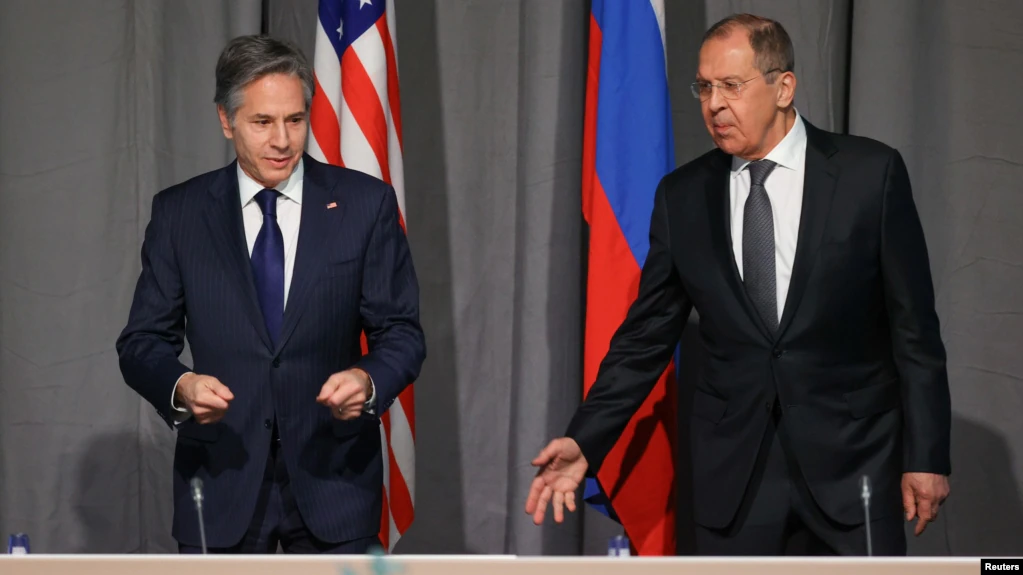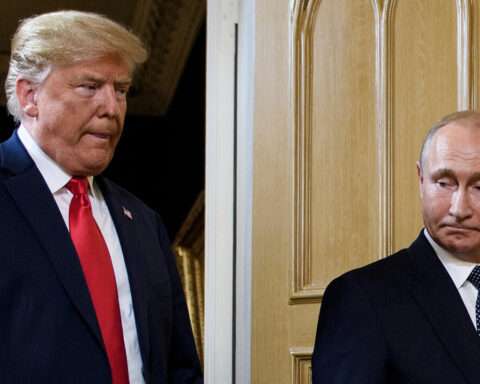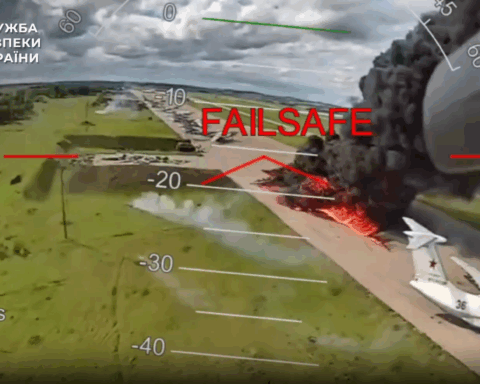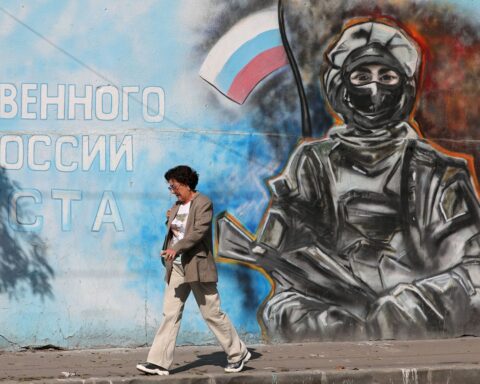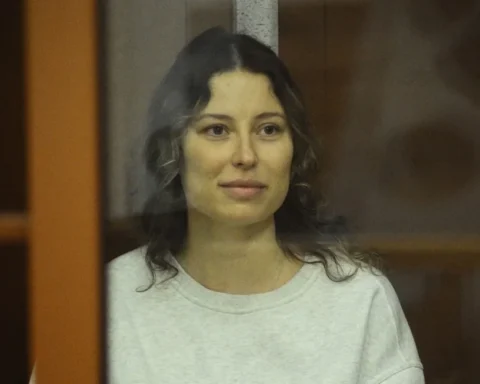U.S. Secretary of State Antony Blinken says Washington is concerned over Russia’s stance toward Ukraine as he prepares to meet Foreign Minister Sergei Lavrov amid escalating tensions over a buildup of Russian troops near its border with Ukraine.
The meeting is set to take place on December 2 on the sidelines of a summit of the Organization for Security and Cooperation in Europe (OSCE) and comes after a meeting of NATO foreign ministers in Riga, Latvia, where Blinken said Russia’s military operations appeared to be an effort to destabilize Ukraine from within.
Ukraine and Western officials say Russia has kept tens of thousands of troops and heavy equipment near the Ukrainian border since war games held in western Russia earlier this year.
On December 1, Russia’s Defense Ministry said more than 10,000 Russian troops started military exercises in the country’s southwest, close to the Ukrainian border.
“The USA, which has deep concerns about Russia’s attitude towards Ukraine, will support Ukraine together with its NATO allies,” Blinken said after meeting with his Ukrainian counterpart, Dmytro Kuleba, in Stockholm on December 2.
Kuleba said after the meeting with Blinken that he had discussed “severe economic sanctions” against Russia to discourage it from further aggressive moves.
In his meeting with Lavrov, Blinken is expected to spell out the threat of further sanctions if Russia fails to end the troop buildup.
“We don’t know whether President [Vladimir] Putin has made the decision to invade. We do know that he’s putting in place the capacity to do so in short order, should he so decide,” Blinken said in Riga on December 1.
The United States is ready to respond with “a range of high-impact economic measures that we have refrained from pursuing in the past,” Blinken added, noting that a diplomatic path forward was available as well.
But there has to be a clear understanding that “if there’s further aggression in Ukraine, there’ll be consequences,” Blinken said.
Russia, which backs separatists fighting against Kyiv in eastern Ukraine, denies it is plotting an attack. Moscow blames Ukraine and its Western backers for fanning tensions, pointing to what it says is a similar Ukrainian military buildup.
In a sign of the deteriorating relations between Moscow and Washington, Russia’s Foreign Ministry said on December 1 that it was expelling a number of U.S. Embassy staff who have been at their posts for more than three years. The diplomats have until January 31 to leave, the ministry said.
Russia and the United States have exchanged several rounds of diplomatic expulsions and imposed other restrictions on their respective diplomatic missions in recent years as relations sink to post-Cold War lows.
Further adding to the tense atmosphere ahead of the Blinken-Lavrov talks, Russia’s Federal Security Service (FSB) said on December 2 it had detained three “agents” from Ukraine’s Security Service (SBU), one of whom was allegedly planning to carry out a bombing. The other two, the FSB said, were gathering intelligence about strategic sites in Russia.
The FSB domestic intelligence agency did not say where or when it had detained the Ukrainians.
There was no immediate comment from Ukraine.
Moscow has also warned NATO against deploying troops and weapons to Ukraine, a former Soviet republic that aspires to join the European Union and NATO, moves opposed by Russia.
Putin said on December 1 he wanted legal guarantees NATO would not expand further east and deploy weapons near Russia’s borders, a reference to Western arms supplies to Ukraine and joint military drills.
“We aren’t demanding any special conditions for ourselves and realize that any agreements must take the interests of Russia and all Euro-Atlantic countries into account,” Putin said. “A calm and stable situation must be ensured for all and is needed for all without exclusion.”
Speaking in Riga on December 1, Ukrainian Foreign Minister Dmytro Kuleba said Kyiv will ask NATO to boost military cooperation and prepare economic sanctions as part of a “deterrence package” to prevent Russia from attacking.
The diplomacy comes as efforts to end the conflict in eastern Ukraine have stalled.
In an annual address to lawmakers on December 1, Ukrainian President Volodymyr Zelenskiy called for “direct negotiations” with Moscow in order to end the war.
“We must talk, knowing that we have a strong and powerful army,” Zelenskiy said, adding that he was “not afraid” to speak directly with Putin.


